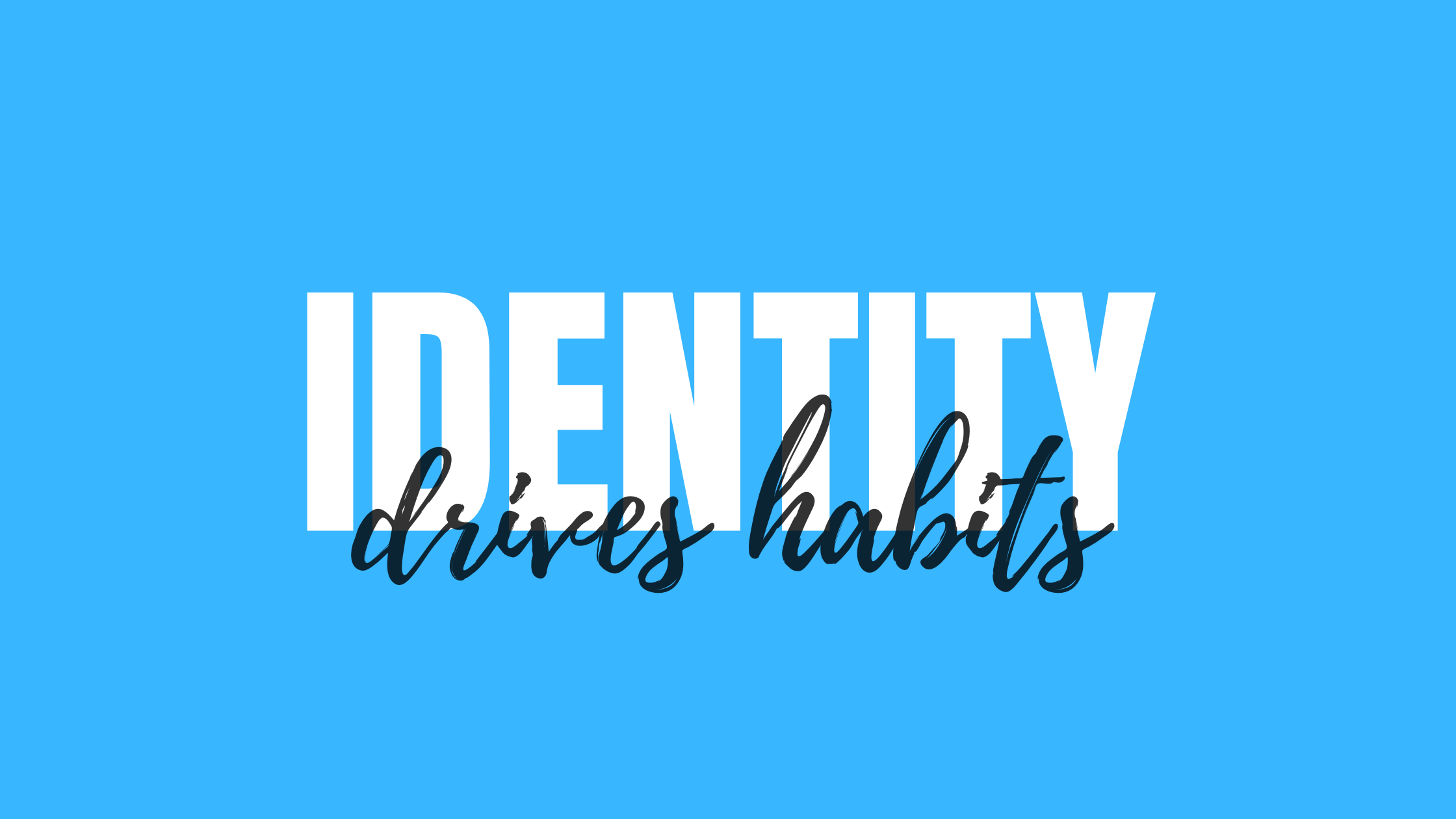Why Identity Shapes Habits (And How To Use It To Your Advantage)

Most of us try to improve our lives by setting goals. We say things like, I want to exercise more, I should eat better, or I need to spend less time on my phone. While goals can be useful, they often keep us stuck in a loop of short-term effort and frustration.
The real shift happens when we stop seeing change as something we do and start seeing it as part of who we are.
If you want to run more, it’s not about forcing yourself out the door with sheer willpower. It’s about starting to see yourself as a runner. Once that identity takes root, running is no longer a chore, it’s simply something you do because it’s part of who you are.
This principle, identity drives behaviour, applies far beyond running. It can influence every area of your life: health, work, creativity, relationships, and more. Here are some examples to bring it to life.
1. Health
Instead of saying “I want to eat healthier,” try adopting the identity of I am someone who nourishes my body. That shift makes reaching for whole foods feel natural, because choosing junk food doesn’t align with who you are.
2. Fitness
Rather than “I should go to the gym,” you might say I am an active person. Active people move regularly, so walking to the shops, cycling with friends, or lifting weights all feel like expressions of that identity.
3. Wellbeing
If you want to build mindfulness, instead of “I need to meditate more,” you could say I am a mindful person. A mindful person pauses before reacting, notices the little things, and takes time to breathe.
4. Work
Someone struggling with procrastination might stop saying “I want to be more productive” and instead adopt I am a professional who delivers on commitments. That identity shifts the frame from ticking tasks to living up to a standard.
5. Learning
If you’d like to read more, don’t just set a goal of “10 books a year.” Instead, adopt I am a reader. Readers naturally make time for books, carry one in their bag, and see reading as part of their daily rhythm.
6. Socialising
If you often feel isolated, saying “I should socialise more” rarely helps. But if you start to see yourself as I am a connector, then reaching out to friends, arranging a coffee, or introducing people becomes second nature.
7. Artistic pursuit
Instead of “I want to paint more,” try I am an artist. Artists sketch, doodle, and create, regardless of whether it leads to a masterpiece. The identity gives permission to act, without waiting for inspiration.
8. Financial habits
If you want to manage money better, saying “I should save more” is vague. Reframing it as I am someone who is financially responsible makes saving, budgeting, and resisting impulse buys feel like part of who you are.
9. Parenting or relationships
“I should be more patient” doesn’t go far. But seeing yourself as I am a patient parent or I am a supportive partner makes patience and empathy the natural response, not the forced one.
10. Creativity in work
Instead of hoping to “be more innovative,” you might adopt I am a problem solver. Problem solvers naturally experiment, tinker, and bring new ideas to the table.
How to adopt and reinforce a new identity
- Start small and prove it to yourself
Each action is a vote for the identity you want. Want to be a runner? Go for a short jog. Want to be a writer? Write a paragraph. Small wins compound. - Use language carefully
How you talk about yourself matters. Replace “I want to” or “I should” with “I am.” It feels strange at first, but language trains the brain. - Surround yourself with evidence
Identity is reinforced by your environment. Keep a yoga mat in sight if you’re a yogi, display your books if you’re a reader, surround yourself with tools that reflect who you are. - Find your tribe
Being around others who share the identity strengthens it. Join a running group, a writers’ circle, or a professional network that embodies the standards you want to live by. - Celebrate alignment, not just results
When your actions reflect your chosen identity, acknowledge it. Skipped junk food? That’s you being someone who nourishes your body. Wrote two paragraphs? That’s you being a writer.
When you start with identity, habits stop being a daily battle. They become the natural expression of who you are. And over time, those small identity-based choices accumulate into a life that feels consistent, purposeful, and authentic.